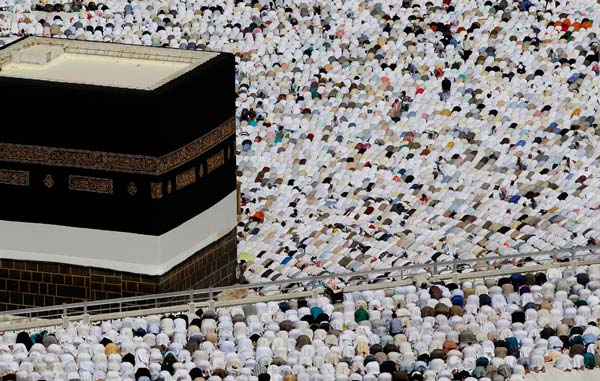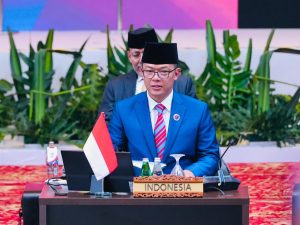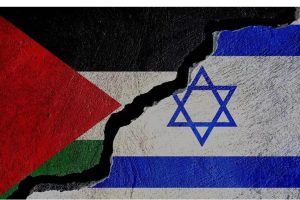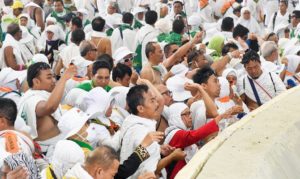By: Shaykhul Hadeeth Muhammad Zakariyya*
Abu Hurayrah radhiyallahu anhu reports that Rasoolullah sallallahu alayhi wasallam said “Whoever performs Hajj for the sake of pleasing Allah and therein utters no word of evil, nor commits any evil deed, shall return from it as free from sin as the day on which his mother gave birth to him.”
When a child is ushered into this world, it enters this life without any blemish and is free from any form of sin. Now, when the Hajj has been performed with utmost sincerity for Allah’s sake, the pilgrim returns to that sinless state.
When we speak of forgiveness of sins as in the Hadeeth mentioned above, we actually refer to minor sins. However, the contents of this Hadeeth have been noted in such numerous Ahaadeeth that some learned Ulaamaa are of the opinion that minor as well as major sins are included in this pardon from Allah.
In this Hadeeth under discussion, three things are mentioned. In the first place we read that Hajj should be for Allah’s sake, and that there should be no worldly object and no ulterior motive prompting this holy deed, neither should it be for the show of things, nor for personal fame. Many people proceed to Makkah for the sake of personal honour and show. Such people have indeed wasted whatever they have spent by way of wealth, health and energy. For them there shall be no reward. We admit that when a person has performed his Hajj even for the sake of showing others, his obligation has been carried out. But how foolish it is indeed that a person should deny himself such great virtue and reward (in the form of Allah’s great pardon) merely because of his desire to be noted among some people.
Also Read: Imaam Yakhsyallah: Nurture Love for the Prophet, One Will Be with Whom One Loves
Rasoolullah sallallahu alayhi wasallam once said, “Near the time of Qiyaamah the rich ones from amongst my Ummah will perform Hajj for the sake of travel and holiday; (like having a holiday in Hijaaz instead of one in London or Paris). The middle class will perform Hajj for commercial purposes, thereby transporting goods from here to there while bringing commercial goods from there to here. The Ulamaa will perform Hajj for the sake of show and fame; (to outdo and surpass Maulana so and so, or any rival shaykh who had performed Hajj a certain number of times). The poor will perform Hajj for the purpose of begging.” (Kanzul Ummaal)
The Ulamaa have stated that should a person perform a “Hajje Badal” on behalf of someone else for a specific price, so that he derives worldly benefit from such a Hajj, he too is included among those who perform Hajj for commercial purposes.
In another Hadeeth we read “that the kings and rulers will perform Hajj for the sake of having pleasurable holidays; the wealthy ones for the sake of business; the poor ones for the sake of begging; while the learned ones will come for Hajj for the sake of show.” (It’haaf)
In the first of these two Traditions, we read that the wealthy ones will perform Hajj for the sake of having a tour and a holiday. In the second Hadeeth we read again that they will do so for the sake of business. In actual fact there is no contradiction here even though it apparently seems so. In the former case, those mentioned as wealthy ones are actually those very rich ones who in the second Hadeeth are called sultaans or rulers. In actual fact they are slightly lower that the rulers. For this reason they are also called the middle class.
Also Read: Thanksgiving: An Islamic Perspective
Once Umar radhiyallahu anhu was standing between Mount Safaa and Marwah. A group of people came along, alighted from their camels and proceeded to perform tawaaf around Ka’bah. They then came for the sa’ee between Safaa and Marwah. Umar radhiyallahu anhu inquired from them as to who they were. They replied that they were from Iraq. When Umar radhiyallahu anhu inquired as to whether they perhaps had any other intention, e.g. to claim an inheritance, to reclaim a debt to them, or for any other business purpose. They replied: “No”. Then Umar radhiyallahu anhu said: “In that case restart your deeds (like people who have done no evil deeds)”.
What Umar radhiyallahu anhu implied was that having come to the Holy House solely for Allah’s sake, their previous evil deeds were forgiven. They can now start anew. The second point that becomes clear from the Hadeeth under discussion is that no evil word shall be spoken. The Ulamaa have explained that the word “rafath” (evil speech) includes every single form of words which are unseemly, nonsensical and unnecessary to such an extent that even the mention of sexual relations with one’s wife is also included. To indicate or insinuate such actions with hand signs or the eyes, should be refrained from. All such actions and others which stir passions and lust are condemned.
The third point towards which attention is drawn is “fusooq”, which here signifies every single form of disobedience to Allah’s will. One should especially avoid any form of argument and dispute. In one Hadeeth our Rasoolullah sallallahu alayhi wasallam has said: “The beauty of Hajj is attained by speaking amicably with others and to feed them.” To argue with fellow Hujjaaj and to fight with them is the opposite of amicable speech. Hence it is the duty of a Haajji not to criticise his fellow Hujjaaj, to meet everyone with love, humility and humbleness, and to deal with them in a most friendly manner. Some Ulamaa have explained that to meet others in a friendly manner does not only mean that one should not hurt or trouble one’s fellow men. It means that one should (without retaliation) bear and pardon the hurt that comes from their side to you.
The word safar (a journey) means in actual fact “to expose”, “to make clear”. The Ulamaa informs us that a journey is called safar in Arabic because on a journey one’s character is exposed and becomes clear.
Also Read: Achieving the Position of Fasting Expert with Kindness of Morality
Once Umar radhiyallahu anhu asked a man whether he knew a certain person to which the man said that he knew him. Then Umar radhiyallahu anhu inquired, whether the man had been on a journey with that person, to which the man said that he had not. Then Umar radhiyallahu anhu said: “You do not know him.” In one Hadeeth it is stated that a person praised another in the presence of Umar radhiyallahu anhu. Umar radhiyallahu anhu asked: “Did you travel with him?” He replied: “I did not travel with him.” Umar radhiyallahu anhu asked: “Did you have any dealings with him ?” He answered: “No, I had no dealings with him.” Umar radhiyallahu anhu then said: “You do not know that person.” (It’haaf).
There can be no doubt about it that only after having been with a person in similar cases can one truly know a person’s character and his reactions to situations. On a journey there is always a certain amount of inconvenience which inevitably leads to arguments and it is for this reason that the Qur’aan especially mentions: “And let there be no arguments in Hajj.”(R04/R03)
*Source: Sharia Program
Mi’raj Islamic News Agency (MINA)
Also Read: The Power of Charity in Ramadan
































 Mina Indonesia
Mina Indonesia Mina Arabic
Mina Arabic